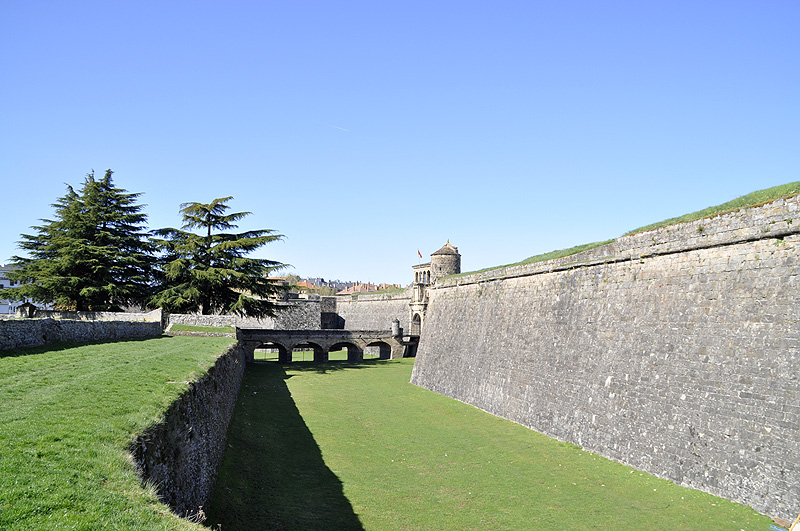Jaca. Castle of San Pedro (St Peter) or Citadel. 16th century
Av. del Primer Viernes de Mayo. 22700 Jaca
T. (+34) 974 357 157 / 974 357 150 / 974 363 746
info@ciudadeladejaca.es
http://www.ciudadeladejaca.es/
The Citadel of Jaca or Castle of San Pedro (St Peter) is one of the most exceptional and valuable monuments in the Jacetania area. It was built as part of a defence strategy applied by Phillip II after the invasion of the Tena Valley by an army from the south of France in January of 1592, as well as to control any potential internal conflicts.
The Citadel of Jaca was designed to respond to the attacks of armies with artillery. The ground plan is pentagonal with five reinforced bastions armed with canons at each corner. Its first line of defence is made up of a moat, covered walkways, a parade ground and a downward slope around the external perimetre.
It was designed by the well-known military engineer Tiburzo Spanocchi and was conceived as the focal point of a dense network of Pyrenean defences, which included the towers in Anso, Hecho, La Espelunga (Canfranc) and Santa Elena (Biescas – Tena Valley) and the small castles of Berdún and Canfranc.
Its position between the medieval city and the Aragón River and outside the city walls was not popular at first among the inhabitants of Jaca who saw it as an infringement of their special rights and privileges. Construction work began in 1592 and by the following year the exterior structure was virtually finished except for the last layer of decorative stone. On the inside there were five barracks which could accommodate 300 troops.
In 1613, under Phillip III, the main entrance was completed. However, the digging of the moat took longer as did other related projects which were still being finished in the 17th century.
The garrison, offices, storage and munitions rooms are organised around the enormous central parade ground in five blocks which run parallel to the external walls. Inside, there is also a Barroque style military chapel dedicated to St Peter. It was built in the second half of the 17th century and has a stone doorway. The Citadel was only used defensively during the War of Independence although paradoxically, it was the French troops that holed themselves up there after conquering the fortress. They were to occupy it for four years.
Jaca Tourist Office . [ Jacetania ]
Also consult...
¤ Monuments
¤ Nature
¤ Villages
¤ Sport
¤ Tourist Offices
¤ Museums and Interpretation Centres
Guided tours 360°
Ciudadela de Jaca
[Español] · [Inglés]
Monasterio de San Juan de la Peña
[Español] · [Inglés]
Fort du Portalet
[Español] · [Francés]
follow us in...




 Comarca de La Jacetania
Comarca de La Jacetania
C/ Ferrocarril s/n 22700
JACA (Huesca)
T. (+34) 974 356 980
F. (+34) 974 355 241
:: Oficina de Turismo de JACA: 974 360 098
:: Oficina de Turismo de CANFRANC:
974 373 141
Site Map









